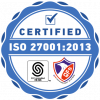How Did You Get Into The Mortgage Broking Industry?
Nadine: How did you get into the mortgage broking industry?
Paul: I got into the mortgage broking industry, I left school at 18. I did 10 years in the military. And while I was in the military, I was buying some property and building a bit of a property portfolio. And then I sort of had a bit of a natural interest for finance and thought after I left the military what am I gonna do. And financial planning was the first thing that came to mind.
So I did a financial planning course by correspondence and then when I left the military I got a job with one of the banks with the financial planner. Did that for a while, selling stocks and shares and financial planning advice.
My natural love affair was always with property, as I was building a property portfolio. I was always going to the banks, seeing the bank manager, talking to the bank manager about how it’s all structured. Found out at the time that I, in my discussions with the bank manager, that I knew more than they did. There wasn’t really any mortgage brokers around, this is 20 years ago so the late 90’s. There wasn’t a lot of mortgage brokers around so the concept of going to a mortgage broker and getting help for loans wasn’t really something that was around then.
But I looked into it and around 2002, 2003 I discovered there was a thing called mortgage brokers, very few and far between. I then moved from financial planning to mortgage broking and been doing it ever since.
So 2003 was when I set up my business and it’s been going since then. So it’s kind of one of the probably the more early brokers that started out. It was back with Wizard Home Loans back then. So it was a long time ago.
Nadine: Yeah, that’s good. I mean, it’s good to see that you’re able to take something that you were passionate about and had a natural talent for and turn that into a business.
Paul: Yeah, and that’s permeated throughout our business from day one. You know, we never think about the money or we never think about the accolades, we just think if we can help this client, every time we help a client, it just makes such natural sense that the business just builds through helping people.
Biggest Challenge In The Industry & How To Overcome It
It’s a huge problem and it changes every week. For me as a broker, I just think collect as much data as you can in the most efficient way that you can. Sift through that, provide as much as you can to the bank, and work with your regulators and aggregators to make sure that you are compliant, your compliance team and all the rest of them.
Nadine: Yeah, okay. So then it gives the business owner a little more responsibility around how they’re delivering a service or quality of service to their clients.
Paul: Yeah, absolutely. I mean, we haven’t got time in this industry to have to go back on a file and ask “why didn’t you do this, why didn’t you do that.” My approach to it is to just do as much as you can upfront, grab as much information upfront. Work with your team as much as you can and to collect that information into a manageable work source.
It’s done well for us just because the team that we built, our compliance, the compliance that our aggregator knows the team we’ve got. And so they’ve generally leave us alone. But it’s not really been flagged with any banks or anything like that. It’s a big challenge.
Disruptors In The Industry
Things like collecting your bank statements online, client portals, and all the rest. These things are right at your fingertips. If you can master the art of putting it all together in a manageable format using manageable platforms with staff around you that know how to use it, then you’ll be at the forefront.
Nadine: And it’s also easier for your customers to actually be able to maybe upload information to a portal rather than scan and all.
Paul: Definitely.
Nadine: Take a photo and send it to you?
Paul: Definitely. The moment that I changed my method of collecting information from clients. So I use client portals. I don’t collect paper from my clients. We have a meeting with our clients but I don’t collect any information. That information has already been collected through a client portal.
My initial meetings with clients are always just verbal. We’ll talk about it and they’ll tell me some information and then from that meeting, if I think we can go anywhere with that client, I’ll send them a client portal. I don’t want them to print out tax returns and bring them into the office. That’s not what I want. I’ll want them to sit at home, input all their data into our client portal at home or at work, upload their pay slips, their tax returns, integrate bank statements and all the rest of it into the software system, use the technology to collect that information.
Then, it makes life so much easier for your clients. And your clients really don’t wanna be printing out and bringing stuff in. They don’t. If they can just type information onto a software system, upload their PDF files into a software system and be done with it, they would much prefer that.
Nadine: So your actual starting point is the fact-finding information. Clients are entering that themselves.
Paul: We introduced the technology to the clients right up front. So in my first meeting with the client, we’ll just have a bit of a chit-chat. I’ll write notes, it’s the only time I’ll really write notes on a piece of paper is when I’m sitting with the client at the very first meeting. So their income, assets, liabilities, I’ll write that down and then I’ll scribble some information about the proposal but from there, if they wanna do a pre-approval, they wanna advance their relationship with me, I introduce them to the software there and then.
I’ll show them the software on the computer system, I tell them and show them what it looks like. Then I’ll say “I’m gonna email you a link to a client portal.” I’ll do it there and then. Everyone’s got their phone on them so while they’re sitting there with the meeting, we set them up with the software. It sends them the client portal link. They then open it and they see it on their phone and they see it working. And then they know what it looks and feels like.
Nadine: Instant.
Paul: So when they go home, they’re not asking me any questions.
Nadine: They’re already educated.
Paul: They’re educated, they’ve been shown it, they know what it looks and feels like. They just go home, input all their data into there. They upload all their required files into the software. And the whole thing integrates and then once it’s done, we get an alert to say it’s completed. And then our staff were able to pick it up and process the deal. All of these is being done with no paper.
Nadine: Yeah. That’s a really good example of a positive disruptor.
Paul: Yeah, it’s been terrific because I don’t like reams of manila folder on my desk. Filing cabinets we don’t use them anymore. Everything is stored into our cloud. Everything in the server. Everything’s online. It can be accessed anywhere in the world at any point in time.
Nadine: Awesome. That always means that you’re not chained to a desk in a particular location. Cause you can work your files from anywhere.
Paul: Correct. Absolutely.
Differentiating Yourself From Others In The Industry
So it’s being able to provide that facility to a client that says “this is a very very complex area you’re entering into. I’m gonna make it as easy as possible for you. And by using technology, this is how we’re going to do it.” They absolutely love it.
Nadine: Yeah. It’s essentially simplifying it for them, and you’re still handling compliance at the level you need to at the backend of the file.
Paul: Absolutely. By everything being digital, you can have staff anywhere that can pick it up and process it. Whether it’s compliance, whether it’s processing, whether it’s just simple admin, whether it’s email management. Whatever it is, you can have staff anywhere plugging into it. The client sees how simple it was at the front end, leaves it all up to the team, and the team can be anywhere doing it. It doesn’t need to be located in a particular office with everybody sitting around a desk in an office. It doesn’t need to be.
Nadine: Yeah it’s the beauty of the cloud, isn’t it?
Paul: Fantastic.
Nadine: Digital workspace.
Paul: I mean, any broker that doesn’t think we’re moving into the digital space is fooling themselves. We are absolutely moving into the digital space. The sooner you understand that, the better you will be. You will be at the forefront.

